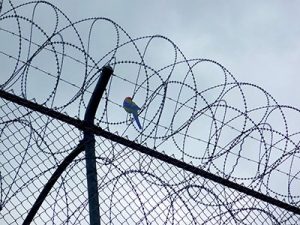 Interim findings from our new South Australian Dual Involved project (SADI) indicate that significant resourcing pressures are hindering the ability of Department for Child Protection (DCP) staff to do their best for the individual children and young people who are caught up in the state’s care and youth justice systems, and otherwise known as ‘dual involved’.
Interim findings from our new South Australian Dual Involved project (SADI) indicate that significant resourcing pressures are hindering the ability of Department for Child Protection (DCP) staff to do their best for the individual children and young people who are caught up in the state’s care and youth justice systems, and otherwise known as ‘dual involved’.
Since February of this year, 46 children and young people in care – mostly living in residential care – have been detained in Kurlana Tapa Youth Justice Centre (KTYJC). To gain a better understanding of why the numbers of this highly vulnerable and complex group are increasing at a concerning rate, we spoke with many of the children and young people and some staff from several service providers who support them. This is what they have to say…
What are dual involved children and young people telling us?
Here are just some of the things this distinct group, with their diverse experiences, have told us:
- some say they prefer to remain in KTYJC because they don’t feel safe living in residential care
- some say they choose to ‘go on MPR’ (go missing) rather than stay at their DCP residential care home
- some value the structure in KTYJC (including access to education) which they don’t have when they are in the community
- they express frustration that they are arrested for relatively minor matters after police are called by the residential care facility (eg for verbal aggression or property damage)
- they think “some residential care staff don’t know how to manage children and young people with behavioural problems or disabilities well” (and we note that this increases the likelihood that the police will be called)
- some have been held in custody for extended periods because they can’t get bail due to the lack of an appropriate placement in the community – one young person told us “they are only offering me a place where I don’t want to be and I would only run from there so I guess I’ll have to stay in here” (and it was generally acknowledged that staying at that placement was associated with trouble for that young person)
- some young people have told us there was no support for them when they’ve gone to court
- others say that their social workers were in the court but didn’t say anything that would help
- some spoke of a lack of visits from their social workers and that it has been really hard to contact them
- one young person tried to contact her social worker multiple times – but it kept going to voicemail and the Kurlana Tapa telephone system does not allow her to leave a message
- some young people talked about how it felt to be detained in the Adelaide City Watch House (an adult facility)
- a large number of young people told us about a time delay between being granted release by the court and being picked up from KTYJC (with some reporting a wait time of up to six hours).
What are other stakeholders saying?
Other stakeholders have raised the following systemic issues with us:
- DCP support not being available for some children and young people appearing in court
- growing concerns that courts are not granting bail due to inappropriate remand addresses being provided by DCP
- the lack of adequate transition plans for return to the community after young people have served long periods of time within KTYJC
- the risk that some young people will lose their accommodation if DCP is unwilling to implement support when a young person is released
- some young people not having access to Centrelink support for up to a week after being released
- changes in external circumstances while a child or young person is in detention so that they are not able to return to their families, requiring DCP involvement
- it was reported that on some occasions, DCP has advocated that some children and young people remain in KTYJC, rather than being granted bail
- views were expressed that some children and young people become bored with education in KTYJC.
There are many issues and concerns still to be addressed as part of the SADI project which we will delve into in the coming months. As part of this, we will be talking more with dual involved children and young people about their thoughts about what life is like for them, through an intensive consultation process. These findings will be reported in our interim report due for release later this year.
If you would like to discuss any of the matters mentioned above, please do not hesitate to contact Conrad at conrad.morris@sa.gov.au.
